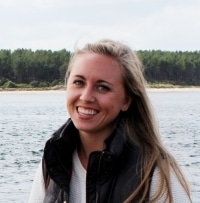We hit an exciting milestone in March with both our Facebook and Twitter pages reaching more than 1,000 followers. So, a big thank you is owed to everyone for liking and engaging with DeSmog UK!
Our top story caused quite the stir, to say the least. In a two-part exclusive interview with Michael Mann – dubbed his most intimate interview ever – we covered everything from American football and colour printers to Mann’s love of solving “important problems”.
With almost 4,000 pageviews between the two posts, and more than 200 shares on social media, we saw a global and varied readership. Michael Mann thought it was pretty great too, sharing it out on all his social media channels (cheers for that!).
The feature was followed by the latest piece in our ongoing investigation into the Infrastructure Act, which came in second with more than 1,600 reads. In this post we took a closer look at where the controversial clause to maximise oil and gas came from. (Spoiler alert: the oil and gas industry may have had something to do with it.)
Solar, Biomass and Fracking, Oh My!
Last month, we also revealed the contradiction in Liz Truss’s stance on renewable energy. In a DeSmog UK exclusive, we showed that the environment secretary scrapped solar subsidies in favour of biomass, despite years of working to cut subsidies to biomass.
Our series on the redacted fracking report saga continued, as Greenpeace appealed to the UK’s transparency watchdog over the government’s repeated refusal to publish an unredacted version of its Shale Gas Rural Economy Impacts report. With 1,600 likes on Facebook, I think our readers might agree.
And, in case you haven’t already noticed, we’ve got a new contributor specialising in fracking. Say hello to Ben Lucas, MA Investigative Journalist at City University, London. You can read his first post here on how fracking firm IGas refused further investigation into possible site contamination last month.
Climate Deniers
Climate deniers were also kept on their toes in March as Mark Carney, Governor of the Bank of England, hit back against Lord Nigel Lawson’s accusation that the Bank had its priorities wrong by researching the impact of climate change in the insurance industry.
As Carney put it: “In the insurance business one of the top risks is climate change. Understanding those risks… is absolutely essential.”
Meanwhile, Matt Ridley took to the Wall Street Journal to write what can only be seen as a love letter to fossil fuels. We then published a rebuttal by the US-based environmental communications group, Climate Nexus.
And finally, we were among the first to call out UK conservative think tank the Centre for Policy Studies for publishing an anti-renewables report, written by climate denier Rupert Darwall.
The Department for Energy and Climate Change didn’t seem too pleased with it either, stating that the report “ignored the reality of the energy market” and that it also “appears to suggest that we should row back on the tremendous gains we have made in the fight on climate change. Given the dire consequences of global warming this is not an option.”
Do you have questions or comments? Got any suggestions for investigations? Feel free to email me at [email protected]
Like us on Facebook, follow us on Twitter and check out our mailing list to stay up to date on our latest work!
Subscribe to our newsletter
Stay up to date with DeSmog news and alerts







